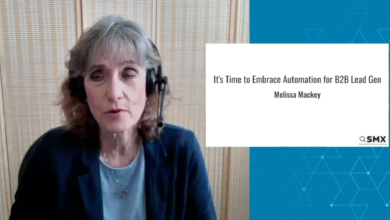Google Ads AI: When to Trust It and When to Be Cautious

▼ Summary
– Google Ads has shifted to an AI-first platform, offering efficiency but reducing transparency and control for advertisers.
– Automated bidding strategies are reliable with sufficient conversion data but risky in new campaigns or volatile industries.
– Recommendations and auto-apply features should be used cautiously, as they often aim to increase spending rather than optimize performance.
– Performance Max campaigns provide broad reach but lack granular control and require robust conversion tracking to be effective.
– Human oversight remains essential to provide business context, set guardrails, and interpret AI-driven outcomes for strategic success.
Navigating the world of Google Ads today means working hand-in-hand with artificial intelligence. While automation can dramatically improve efficiency and performance, it also introduces risks if not managed carefully. The key lies in understanding which tools to trust and which require a more hands-on approach.
Google Ads has transformed from a manual bidding platform into an AI-driven ecosystem. This evolution offers unprecedented scale, but it also demands a new kind of vigilance. Advertisers must now balance the benefits of automation with the need for strategic oversight.
As Julie Bacchini, a respected PPC expert, points out, the biggest challenge is finding equilibrium. AI can assist greatly when applied intelligently, but it cannot replace the nuanced thinking of an experienced marketer. The lack of full transparency means advertisers must continually evaluate whether Google’s suggestions align with their actual business goals, or simply encourage more spending.
A practical framework helps determine where to place trust. Some features operate reliably with minimal intervention, while others need careful monitoring.
Automated bidding strategies like Target ROAS or Maximize Conversions work well when you have consistent conversion data. They optimize in real-time using signals no human could process manually. However, they perform poorly in new campaigns or volatile industries like legal services or emergency home repairs, where conversion cycles are long or competition fluctuates wildly. In these cases, manual or hybrid bidding provides better control.
Custom automated rules and scripts are highly trustworthy because you define the parameters. These tools perform tasks like pausing campaigns or sending budget alerts exactly as instructed. Still, it’s wise to periodically review logs and performance to catch any setup errors or platform glitches.
Moderate-trust features like Recommendations and Auto-Apply require caution. While some suggestions, like fixing broken landing pages, can be helpful, others may aim to increase spend. Never enable auto-apply; always review changes manually.
Responsive Search Ads save time by testing combinations of headlines and descriptions, but they shouldn’t be used where messaging order is critical, such as with legal disclaimers. Similarly, automated ad assets can pull irrelevant text from your site if not regularly reviewed.
Dynamic Search Ads and AI Max for Search occupy a middle ground. They are powerful for discovering new keywords and queries, especially when given clear rules and negative keywords. However, they should be tested in isolation before rolling out broadly.
AI-generated creative tools, like image and video generators, are best reserved for generic products where brand consistency is less critical. For branded goods, the risk of off-message or legally problematic output is too high.
Ecommerce advertisers must focus on feed quality. A clean, accurate product feed allows Shopping campaigns to perform well. Automatic item updates can serve as a useful backup, but they shouldn’t replace scheduled feed uploads.
On the lowest end of the trust spectrum lie fully automated options like Performance Max campaigns. These can help find new audiences across Google’s channels, but they offer little transparency or control. They work best as supplements to core search efforts, not replacements.
Similarly, Smart Campaigns, aimed at small businesses, provide almost no data or control. Professionals should avoid them entirely.
It’s important to remember that AI has inherent limitations. It lacks business context, depends heavily on historical data, and can optimize for unintended outcomes if not properly guided. That’s why human oversight remains irreplaceable.
The most successful advertisers use AI as a tool, not a replacement for strategy. They provide business context, set guardrails, and interpret results. The future of paid search isn’t about choosing between human and machine; it’s about combining the strengths of both.
(Source: Search Engine Land)





